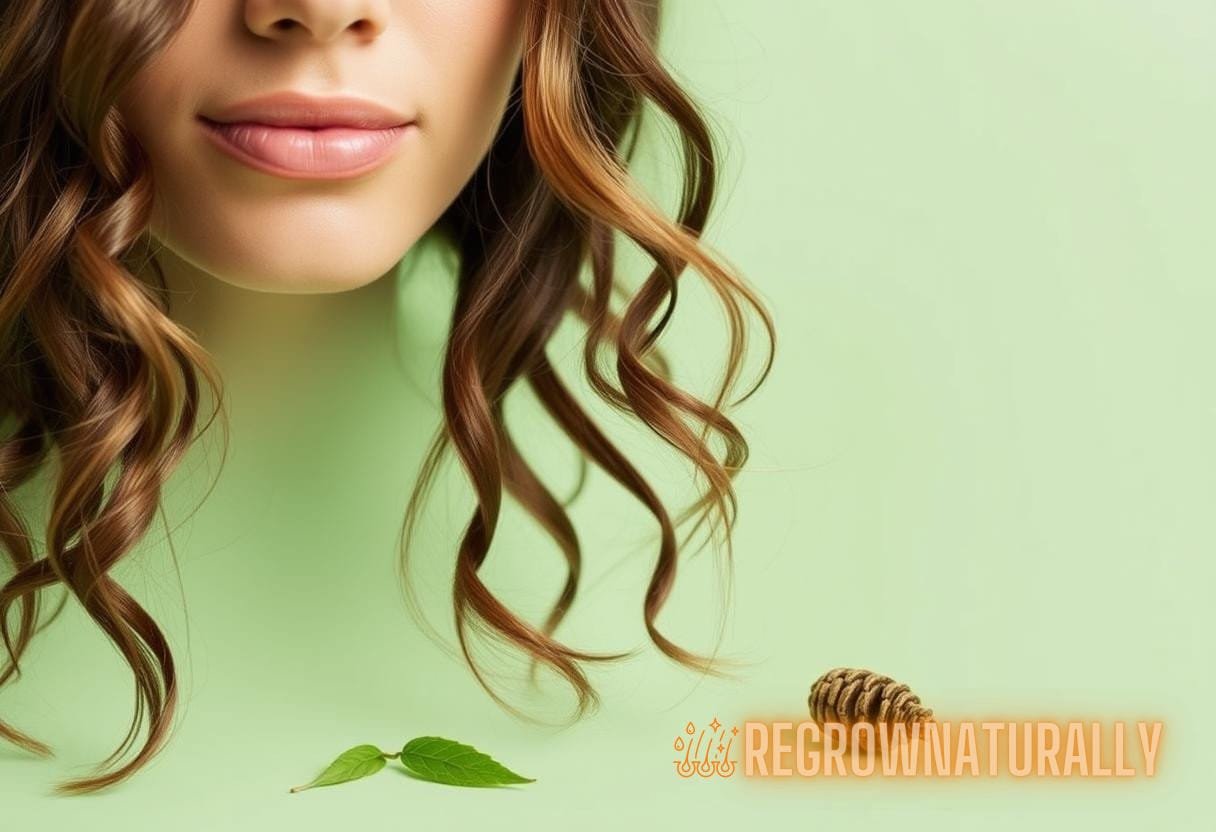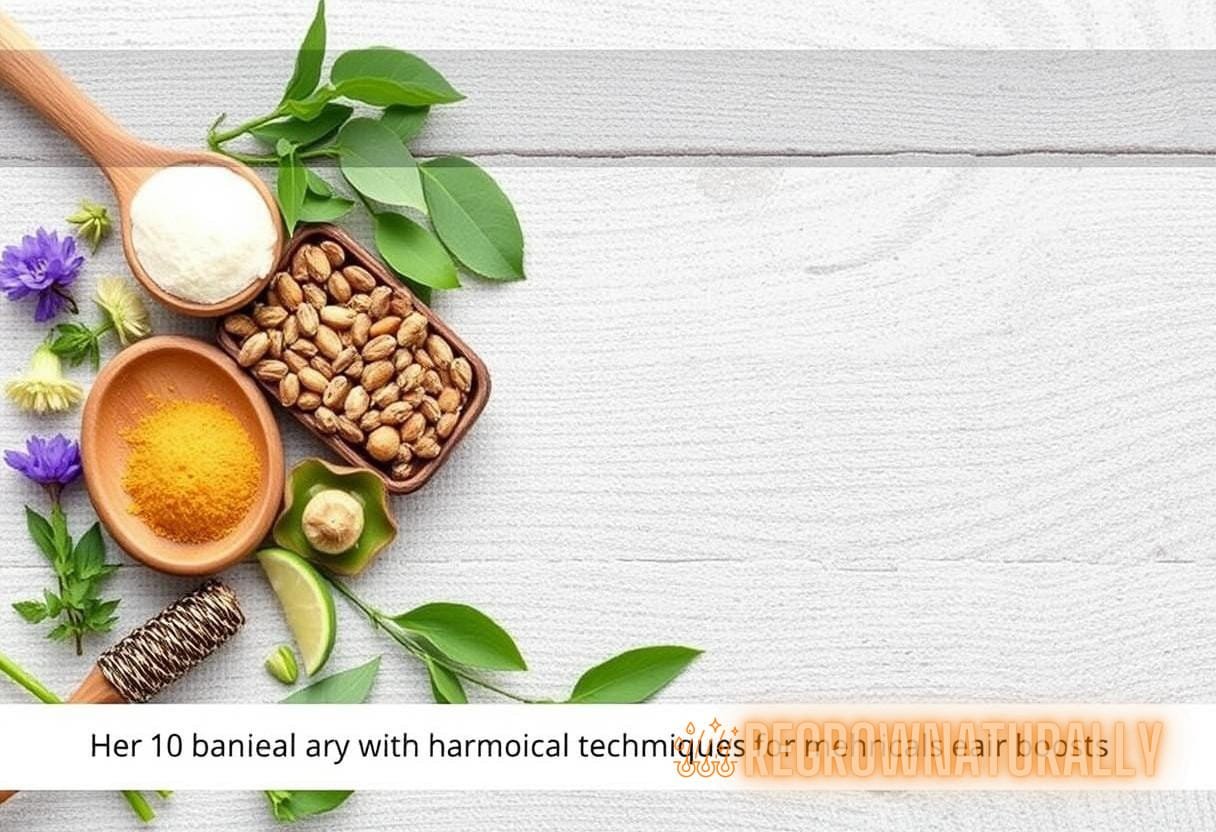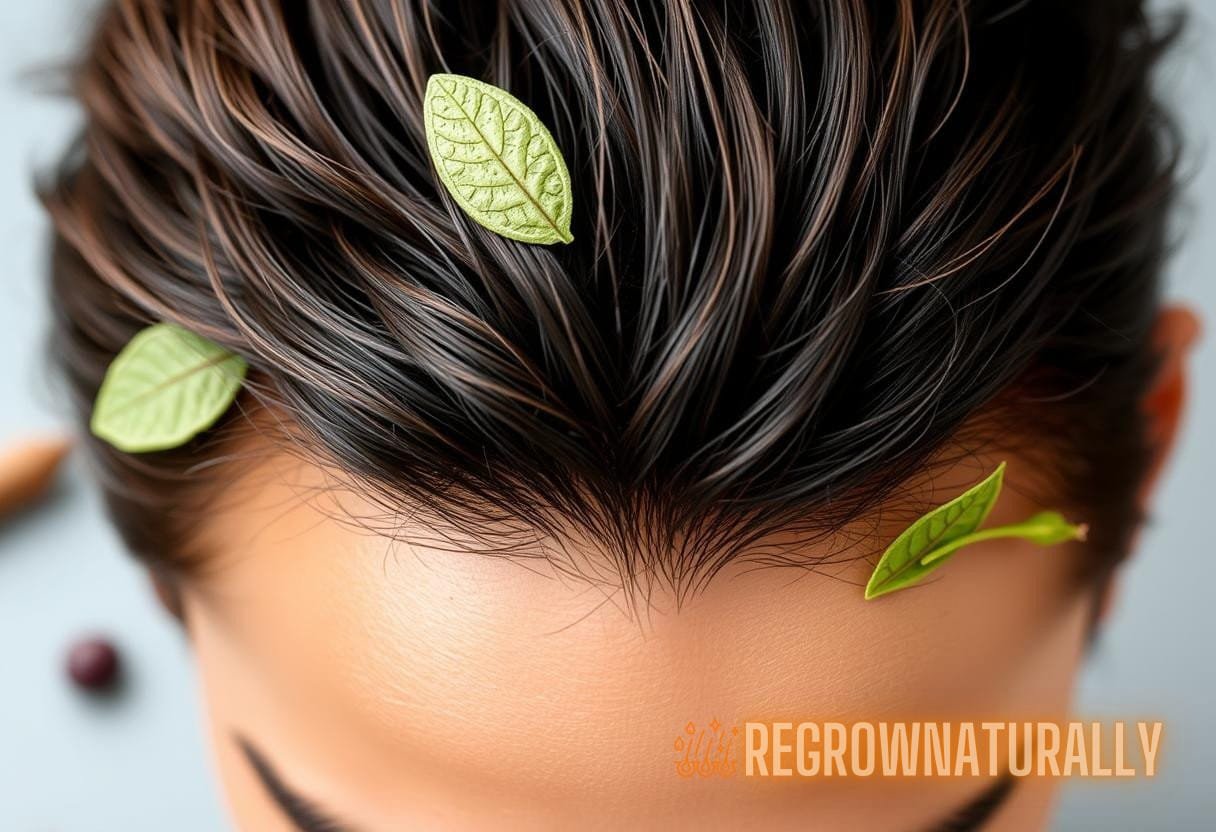Herb-Infused Innovations: Exploring the Synergistic Effects of Phytochemicals on Scalp Ecosystems and Hair Vitality
In recent years, the exploration of herb-infused innovations has gained significant traction in the realm of wellness, particularly within the scope of hair health. The intricate relationship between phytochemicals—bioactive compounds found in plants—and their effects on scalp ecosystems and hair vitality is profound. This guide delves into the fundamentals of herb-infused hair health, integrating scientific insights to provide a comprehensive perspective on how these natural elements can enhance both scalp condition and hair integrity.
Understanding Phytochemicals
Phytochemicals serve as the cornerstone of herbal remedies, offering a plethora of benefits attributed to their natural origin. These bioactive compounds can be classified into several categories, including:
- Flavonoids: Known for their antioxidant properties, flavonoids help neutralize free radicals, contributing to healthier scalp conditions.
- Alkaloids: Certain alkaloids possess anti-inflammatory qualities, which can soothe irritation on the scalp.
- Terpenes: These compounds are known for their aromatic qualities and antimicrobial effects, enhancing scalp health.
- Saponins: Recognized for their foaming properties, saponins can cleanse the scalp and promote an optimal environment for hair growth.
- Essential Oils: Containing numerous phytochemicals, essential oils can regulate sebum production and stimulate blood circulation.
The integration of these compounds into hair care formulations not only targets hair growth but also addresses underlying scalp issues. As we explore herbal remedies tailored for hair health, the role of these phytochemicals becomes increasingly apparent.
Synergistic Effects of Herbs on Scalp Health
Herbs have long been utilized in traditional medicine for their healing properties. Current research supports these practices, emphasizing the synergistic effects when multiple herbs are combined. This synergy enhances the efficacy of individual phytochemicals while also offering a multi-faceted approach to tackling hair ailments.
Key Herbs for Hair Health
Some prominent herbs known for their beneficial properties on hair vitality include:
- Rosemary (Rosmarinus officinalis): Rich in rosmarinic acid, rosemary enhances blood circulation in the scalp, encouraging hair growth. Studies suggest that rosemary oil can improve hair thickness and quantity over time.
- Nettle (Urtica dioica): High in vitamins A and C, as well as iron and calcium, nettle can help reduce hair loss. It is often used as a rinse to stimulate follicles and strengthen hair strands.
- Hibiscus (Hibiscus sabdariffa): Packed with vitamins and amino acids, hibiscus supports the production of keratin, crucial for hair structure. Its natural moisturizing properties help combat dry, brittle hair.
- Fenugreek (Trigonella foenum-graecum): This herb is rich in proteins and nicotine acid, which enhance hair growth. Fenugreek seeds can be soaked, grounded, and applied as a paste to treat conditions like dandruff and hair thinning.
- Aloe Vera (Aloe barbadensis miller): Known for its soothing properties, aloe vera can alleviate scalp irritation, reduce dandruff, and condition hair. Its enzymes are beneficial in breaking down dead skin cells on the scalp.
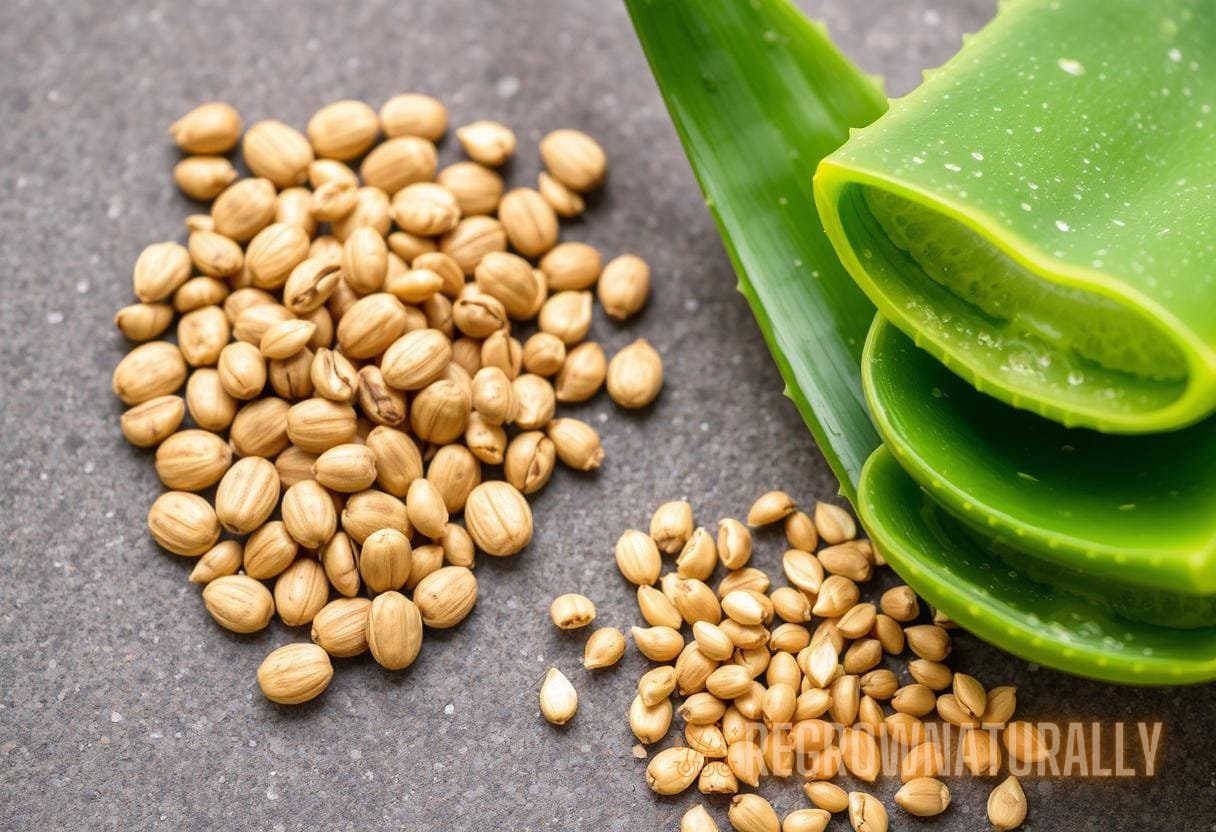
Incorporating Herbs into Hair Care Routines
The application of herb-infused products is pivotal in maximizing the benefits associated with these natural remedies. Various methods can be employed to incorporate herbs into everyday hair care routines:
- Herbal Infusions: Create a herbal infusion by steeping plant parts in hot water. This tonic can be used as a rinse after shampooing to lock in the nourishment.
- Oils and Salves: Infuse carrier oils with chosen herbs to formulate potent scalp treatments. This method allows for extended contact with the scalp, enhancing absorption.
- Hair Masks: Combine powdered herbs with ingredients like yogurt or honey to create hair masks that nourish and hydrate.
- Commercial Formulations: Look for products specifically designed with a focus on herb-infused hair health. Many brands now offer shampoos, conditioners, and treatments enriched with herbal extracts.
Impact of Diet and Lifestyle on Hair Vitality
While herb-infused remedies are beneficial, they should ideally complement a holistic approach to hair health. Factors such as diet, hydration, and lifestyle choices significantly influence hair vitality. Key considerations include:
- Nutrient-Rich Diet: Foods rich in vitamins A, B, C, D, E, and minerals such as zinc, iron, and selenium are crucial for hair health. Incorporate leafy greens, nuts, fish, and lean proteins into one’s diet.
- Hydration: Drinking adequate water supports scalp hydration, aiding in maintaining optimal hair moisture levels.
- Stress Management: High stress levels can lead to hair loss. Techniques such as meditation, yoga, or other relaxation methods are essential.
Scientific Studies Supporting Herb-Infused Hair Care
The scientific community has begun to focus its efforts on understanding the efficacy of herbal treatments for hair health. Numerous studies underscores the impact of selected phytochemicals on hair vitality:
- A 2015 study published in the Journal of Dermatology demonstrated that rosemary oil was as effective as minoxidil (a common hair regrowth treatment) in improving hair growth in androgenetic alopecia.
- Research in 2012 highlighted that an extract from nettle increased the density of hair follicles and was beneficial in treating patterns of hair loss.
- A 2020 randomized clinical trial evaluated the positive effects of hibiscus on hair fall, showing a significant reduction in loss after consistent use over 16 weeks.
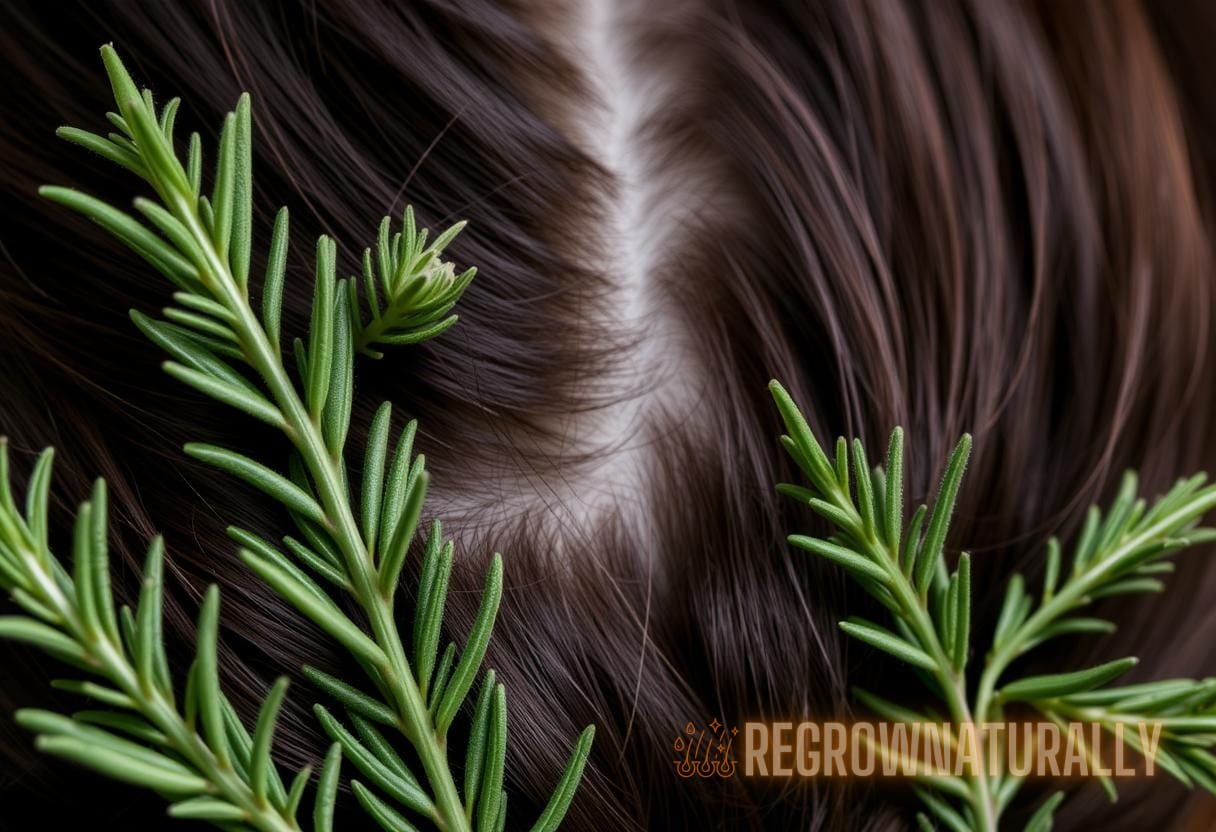
Case Studies on Herb-Infused Hair Health
Real-world examples add anecdotal evidence to the effectiveness of herb-infused hair health. Below are some case studies illustrating these benefits:
Case Study 1: Rosemary Oil for Alopecia
A 30-year-old female patient suffering from alopecia areata incorporated rosemary oil into her hair care routine. After six months of treatment, the patient reported noticeable hair regrowth and significant improvement in scalp health.
Case Study 2: Nettle and Hair Thinning
A 45-year-old male with hereditary hair thinning adopted a regimen of consuming nettle tea and applying nettle oil to his scalp. Over a period of 4 months, a reduction in hair loss and improved hair thickness were observed.
Case Study 3: Hibiscus Hair Mask
A group of participants aged 25-40 used a hibiscus, yogurt, and honey mask formulation bi-weekly for 8 weeks. Post-study evaluations revealed enhanced hair softness, reduced frizz, and increased manageability.
Safety Precautions and Consultation
While herbal treatments are generally considered safe, certain precautions should be taken to mitigate potential adverse reactions:
- Allergens: Always perform a patch test before applying new herbal products to the scalp.
- Pre-existing Conditions: Consult with a healthcare professional if you have allergies, are pregnant, or have medical conditions that could be affected by herbal treatments.
- Dosage: Follow recommended dosages when using concentrated extracts or supplements.
For further details on safe herbal practices, you may refer to the National Center for Complementary and Integrative Health. Additionally, exploring practical guides on herbal remedies can further augment your understanding.
Conclusion
The exploration of herb-infused hair health uncovers a wealth of potential in enhancing scalp ecosystems and promoting hair vitality. By understanding and harnessing the synergistic effects of plant-based phytochemicals, individuals can adopt a more holistic approach to hair care. Observing dietary patterns, maintaining a healthy lifestyle, and being informed of scientific research all contribute to the efficacy of herb-infused innovations in achieving lush, vibrant hair.

